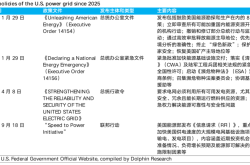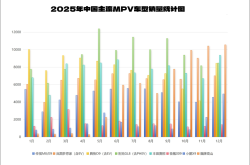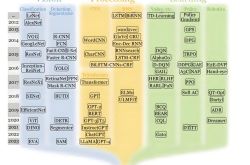Jack Ma Returns to Spotlight, Emphasizing Big Bet on "AI"
![]() 12/13 2024
12/13 2024
![]() 510
510
Jack Ma, an internet industry legend, has largely retreated from the public eye since stepping down as Chairman of the Alibaba Group's Board of Directors in 2019.
However, starting last year, Ma has been increasingly visible online. His recent public appearance at Ant Group's 20th anniversary event sparked considerable speculation, especially considering his last public speech on fintech was at the Second Bund Financial Summit in 2020.
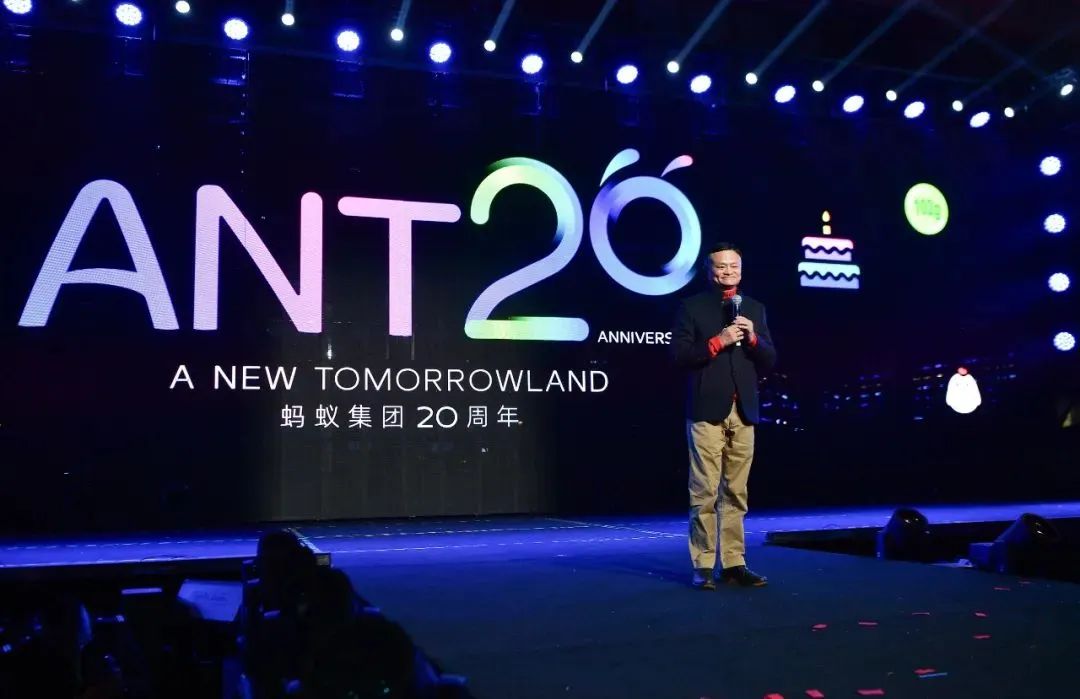
After a four-year hiatus, Jack Ma returned to the limelight, focusing on the transformative potential of AI technology. Rather than "steering the ship," Ma aims to harness his experience to illuminate new possibilities for the internet industry, Alibaba, and Ant Group amidst the public's uncertainty and confusion about the AI era.
1. Jack Ma's Return to the "Internet World"
Following 2020, Jack Ma disappeared from public view for an extended period. However, despite his absence, legends about him persisted.
In September 2020, Hainan Yunfeng Enterprise Management Group Co., Ltd., where Ma holds a 50% stake, established Genghai Muyang (Hainan) Investment Co., Ltd. In a media interview, Ma stated that he would fully commit to the agricultural sector next.
After retiring from Alibaba, Ma reduced his shareholding in the company and ceased being the actual controller of Ant Group, seemingly dedicating all his energy to agriculture. Many netizens have spotted Ma in Japan, Thailand, and other locations, inspecting agricultural enterprises.
While Ma seemed to have become a "legend," since returning to China in March last year, he has coincidentally appeared at every significant transformational juncture for Alibaba and Ant Group.
In March last year, netizens encountered Ma enjoying tea on the terrace of the Hangzhou Yungu School he founded; the next day, Alibaba announced its most significant organizational change since inception, introducing a new "1+6+N" structure.
Since then, Ma's internal speeches have frequently trended on social media. For instance, in an internal meeting in May last year, he proposed that Alibaba should "return to Taobao, return to users, return to the internet."
Ma believes Taobao should further flatten its organizational structure because the next opportunity lies with Taobao, not Tmall, and that Alibaba's past success methodologies may no longer apply.
In June of that year, Alibaba's former Chairman Daniel Zhang announced his resignation, with Joseph Tsai and Simon Wu taking over as Chairman of the Board and CEO of the Group, respectively; three months later, Wu concurrently became CEO of the Taobao and Tmall Group.
Subsequently, Wu initiated substantial organizational adjustments, encouraging everyone to "face reality and restart their businesses." Since then, the Taobao and Tmall Group have been fully taken over by a younger generation.
Coincidentally, during this period, Pinduoduo's market value approached that of Alibaba. Ma responded to an employee post on the internal network, congratulating Pinduoduo and expressing confidence that Alibaba would adapt and change.
In 2024, although Ma continued to "hide," he occasionally posted on the internal network. In April, Ma issued an internal letter titled "To Reform, To Innovate," fully affirming the courage of the new management team comprising Joseph Tsai and Simon Wu in initiating change and expressing support for continued reform. This was the first time Ma had shared his views on the company's reform and development at length since his retirement.
In September, on Alibaba's 25th anniversary, Ma again posted on the internal network, mentioning the surging development of internet AI technology and fierce competition across industries. Many Alibaba businesses face challenges, and Ma reminded employees not to lose sight of their goals under competitive and situational pressures.
Although Ma may seem absent from Alibaba, at every point of change within the company, he emerges as a guiding spirit, voicing opinions on Alibaba's business and strategy, reminding everyone to stay true to their original aspirations.
The same is true for Ant Group. In August this year, the State Administration for Market Regulation announced that Alibaba Group had completed its three-year rectification. In December, Jing Xiandong, Chairman and CEO of Ant Group, announced that Han Xinyi would officially take over as CEO of Ant Group from March 1, 2025.
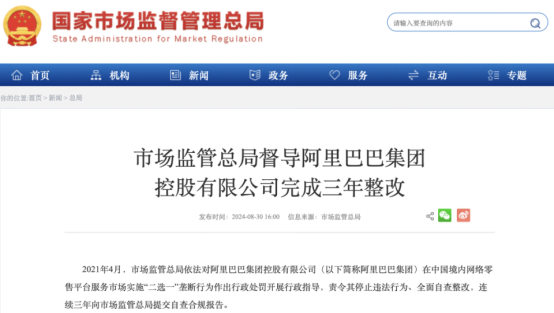
At the critical juncture of Ant Group's leadership transition and transformation, Ma's brief statements provide crucial directional guidance and morale boost for the company.
2. Ant Group's "Next 20 Years"
Ma's speech at Ant Group's 20th anniversary celebration was concise. He first congratulated Ant Group but clarified that he was there not for the achievements of the past 20 years but for Ant's future 20 years.
Furthermore, Ma emphasized "AI" in his speech. He stated, "AI will usher in an even greater era. While AI will change everything, it does not mean it will decide everything. Technology is important, but what truly determines future success is what valuable and unique things we do today."
In the past two years, AI has indeed become a key focus for Alibaba and Ant. Taking Ant as an example, Group Chairman Jing Xiandong established three major strategies as early as 2016, including AI First, Alipay's Dual-Flywheel Model, and Accelerated Globalization, with "AI First" taking precedence.
On the C-end side, Ant Group launched three AI products in September: ZhiXiaoBao, MaXiaoCai, and AI Health Manager, catering to clothing, food, housing, transportation, financial management, and healthcare.
Simultaneously, Ant Group will initiate a co-construction plan for the Alipay Intelligent Agent Ecosystem and launch an intelligent agent development platform called "Treasure Chest," further empowering Ant Group to build a more comprehensive intelligent ecosystem through stronger AI application and scenario distribution capabilities.
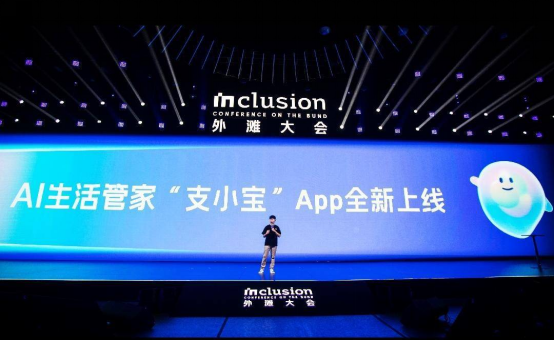
On the B-end side, Ant Group has deployed in AI technologies such as large models, knowledge graphs, operational optimization, graph learning, and trustworthy AI. For example, recently, Ant Group acquired Biansai Technology, a startup focusing on integrating large language models and reinforcement learning, to provide more support for AI applications within Ant Group.
It is worth mentioning that in September this year, Ant Financial Services officially changed its name to "Ant Intelligent Technology," indicating that Ant Group will further leverage cutting-edge technologies such as artificial intelligence, big data, and blockchain to innovate financial services.
Following these actions, there has been speculation that Ant Group may restart its IPO plan. In fact, in addition to accelerating in the AI field, Ant Group has also made new moves in promoting Alipay's Dual-Flywheel Model and globalization.
In July this year, Alipay introduced a new payment method called "Tap and Pay," enabling NFC near-field payment across operating systems. Simultaneously, Ant Group further "broke down walls" by opening up Alipay payments in collaboration with Meituan and JD.com.
Regarding globalization, Alipay has penetrated into terminal payment locations in countries such as Japan, South Korea, Europe, and Southeast Asia. Alipay stated that it aims to increase its user base to 2 billion in the next ten years.
Among these, AI remains the most attractive "new story," especially during the transition from the era of large models to intelligent agents. Ant Group's digital financial business is inherently the "capillaries" of various industries, possessing a mature business closed loop. Through AI technology empowerment, it is expected to uncover more personalized and deeply customized scenario needs.
However, ultimately, only Ant Group can answer whether and when it will restart its IPO. Before that, Ant Group also needs to further enhance its competitiveness and accumulate more resources to lay a solid foundation for a successful relisting.
3. Interpreting the "AI Dream"
Apart from the possibility of Ant Group restarting its IPO, there are other speculations about Ma's return. For instance, is Ma paving the way to return to the core management team?
Currently, this seems to be mere speculation by netizens. Moreover, compared to Ma returning to the management team, as the "soul" of Alibaba, Ma is more suited to appear at critical junctures to stabilize the company's internal morale and unify thinking.
Ma once mentioned that Alibaba aims to be a company that survives for 102 years. Based on this goal, Alibaba has only completed one-quarter of its journey. To successfully navigate three centuries, Alibaba cannot be just Ma's company but must be society's "Alibaba" and China's "Alibaba".
Therefore, compared to whether Ma will return to the company, what matters more is how Alibaba will move forward, how it will change the future through AI, and what drives its sustainable development.
Recently, Alibaba completed a new round of structural adjustments, establishing a new e-commerce business group to fully integrate e-commerce businesses such as Taobao and Tmall Group, Alibaba International, 1688, and Idle Fish, with Jiang Fan serving as CEO and reporting to Simon Wu.
According to Alibaba's fiscal second-quarter 2025 report, Taobao and Tmall Group, as the "core business," generated revenue of approximately 99 billion yuan, with a year-on-year growth of only 1%. Improving efficiency and revenue for Taobao and Tmall to restore growth will become Alibaba's new challenge.
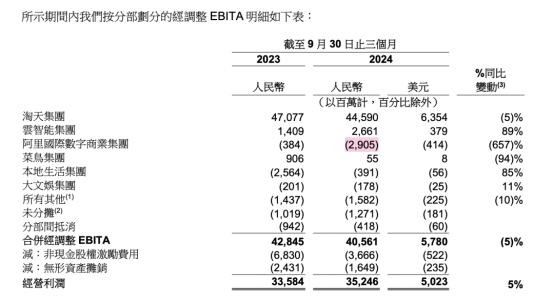
Simon Wu mentioned the strategy of "user-first, AI-driven." Currently, Taobao, Tmall, and Alibaba International have launched multiple AI tools to assist merchants in operating more efficiently.
For example, Taobao and Tmall launched the "Omni-channel Promotion" AI tool in April to help merchants better connect with consumer demand and match consumer groups. Alibaba International's AI capabilities are applied across multiple cross-border platforms, serving 500,000 merchants and 100 million products, with an average daily call volume exceeding 50 million.
In the past two years, Alibaba has also made comprehensive layouts in AI infrastructure and product applications. As the "AI + Cloud" business model gradually matures, it continues to drive Alibaba's performance growth. It is reported that public cloud product revenue, including AI-related products, has achieved triple-digit year-on-year growth for five consecutive quarters.
In the current era where AI has become a must-have resource, Alibaba, as a large technology company, has inherent advantages in terms of capital, data, and scenarios. Alibaba was among the first to utilize AI, and AI has already begun to transform its business model.
However, as Ma said, while driving technological progress is crucial, only by combining technology with human emotions and needs can truly valuable products and services be created. It is hoped that in the next 20, 50, or even 100 years, Alibaba can create an exciting AI era alongside all its technological partners.


